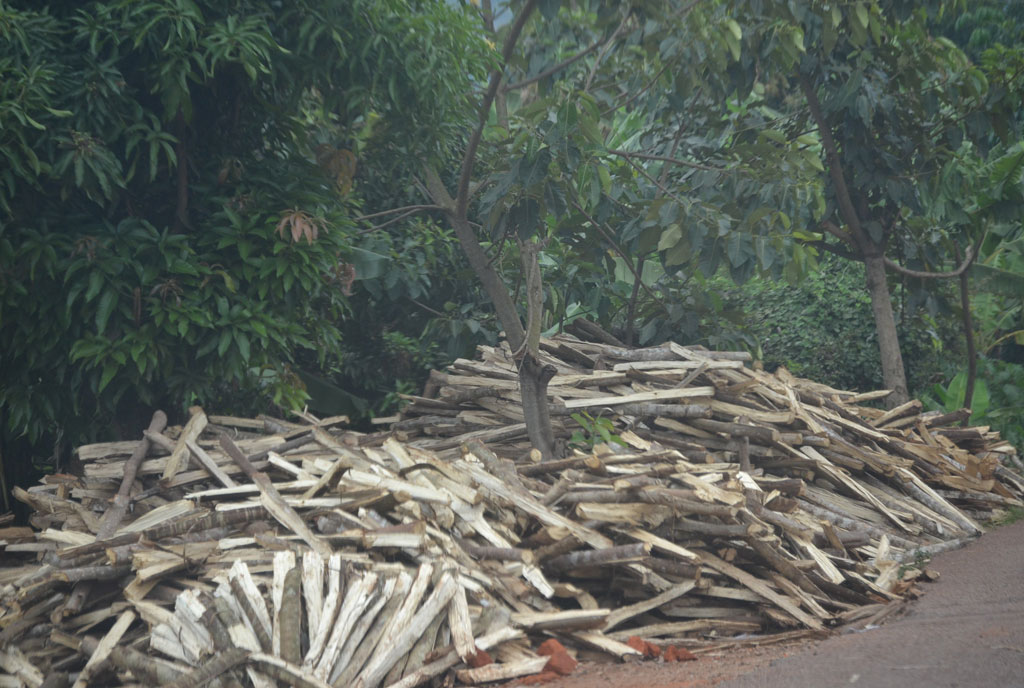Prime
Quick action needed to stop Mabira encroachers

Officials from the National Forestry Authority and the Electricity Regulatory Authority and residents of Byakuku
Village in Buikwe District at a coffee and banana plantation in Mabira Forest. PHOTO/STEPHEN OTAGE
What you need to know:
- It is time for a creative solution to bridge the gap in the speed of enforcement against deforestation.
This month, residents of Wakisi Sub County in Buikwe District raised the alarm on growing encroachment on Mabira Forest. What is new is that encroachers are using chemicals rather than the traditional axe or saw, to destroy the forest. According to residents, when this chemical is sprayed on trees, it causes the rotting of tree roots.
This is a particularly worrying trend within a situation of already fast-declining forest cover not only in Mabira but also countrywide. In 2017, the country’s forest cover was reported as having dropped from 11 to 9 percent. This followed another decline from 24 percent in 1990. It is estimated that Mabira Forest, which has been protected as a forest reserve since 1932, covers 30,000 hectares.
The loss of forest cover goes hand in hand with the massive degradation of forested areas adjacent to the protected areas. Mabira’s location close to the bustling centres of industry and growing demand for agricultural land has made it especially vulnerable to demand for timber by loggers and encroachment by farming communities extending themselves into the protected area in complete disregard or ignorance of its boundaries. The forest has since survived a government attempt to degazette 7,000 hectares for sugarcane growing, a move that was successfully contested by environmental activists.
At the moment, efforts to protect and restore the forest seem ineffective since large groups are able to move into the forest almost overnight and establish themselves unknown to the authorities. Once encroachers establish themselves in protected areas, extracting them not only puts forest rangers in danger of physical harm but also leaves forest regulators in the crosshairs of politicians.
Selfish exploitative interests have taken over in Mabira with forest regulatory bodies and law enforcement playing catchup to the fast-moving degradation of the forest. This might be the time to work out a partnership with the communities surrounding the forest, to protect it for mutual benefit of conservation and careful extraction of minimum benefits such as medicinal plants and perhaps a share in tourism revenues.
Without the cooperation of those living adjacent to the forest and/or stepping up any existing efforts at community collaboration, illegal activities will continue to crop up in the forest faster than the authorities can catch up with the encroachers. With increasing commercial interests, including an ever-expanding construction industry and the attendant demand for timber, forested areas like Mabira will continue to be targeted for encroachment and destruction. It is time for a creative solution to bridge the gap in the speed of enforcement against deforestation.



